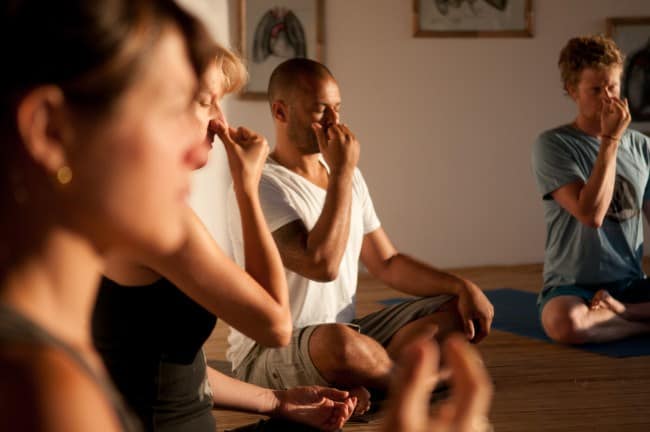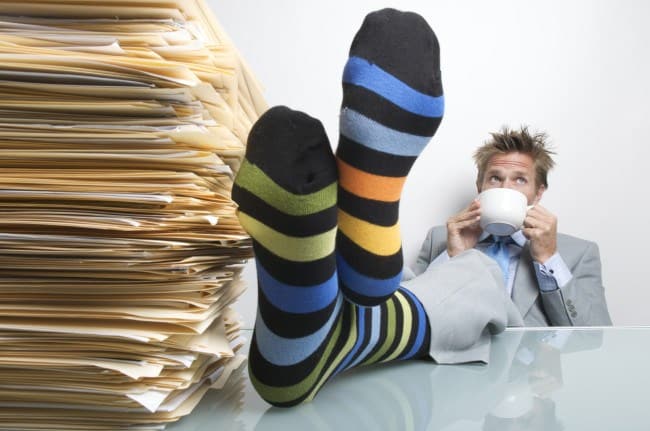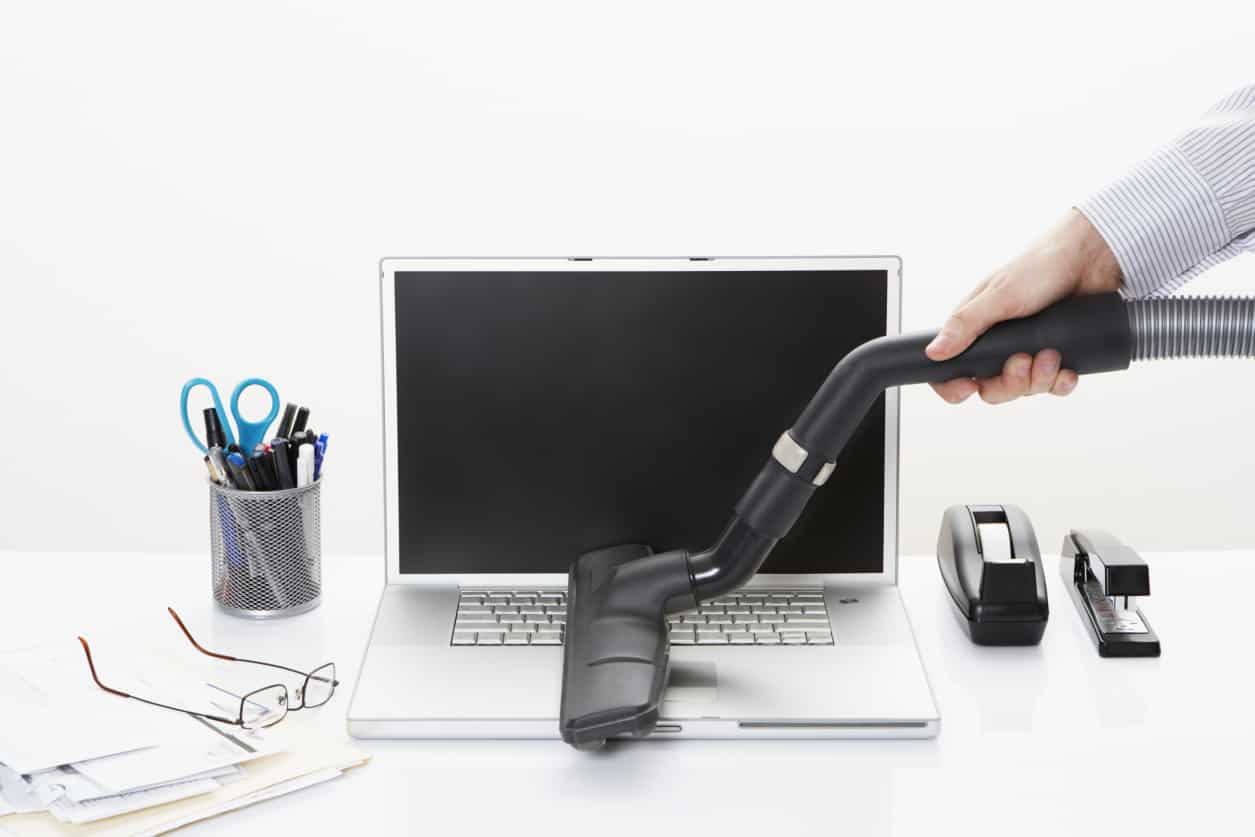Whether you’re working from the office or at home, it’s no secret that work is stressful. To most people, Mondays are hell and Fridays are heaven, and everything in between is best remembered as a frenzied blur of what we all hope was productiveness. But what if you could go from day to day without that dreaded feeling? You can, as long as you find your Zen.
Zen, a Japanese term, is deeply rooted in the Buddhist philosophy of being really, really calm. It’s about peace, fighting stress, and getting stuff done with clarity and focus. Back in the day, this involved rituals, incense and meditation — nowadays, you can try and get the same effect with a little science and a lot of mindfulness.
#1. Get a morning workout.

Most people hate waking up early, and for a good reason. It’s usually dark, you’re still half asleep, and it tends to be cold, too. But there are amazing benefits to working out first thing in the morning, and while it might sound contradictory, these benefits include boosting your energy, getting your insulin sensitivity up, and increasing your production of growth hormones and testosterone — which burn fat, build muscle and improve bone quality in both men and women. Working out on an empty stomach is more beneficial than doing it at the end of the day when you’re depleted, and the kick in the butt you receive from your workout will do wonders for keeping you alert and awake throughout the rest of the day.
#2. Learn to breathe — literally.

It’s fair to say that if you’re reading this post, sitting on your chair, scrolling down, you probably know how to breathe. In fact, everyone does. But that doesn’t mean you’re doing an efficient job of it. When we’re born, taking slow deep breaths is pretty much all we do at first. But as we grow older, bad habits and posture issues turns those slow deep breaths into short, shallow inhalations — which aren’t nearly as good for you.
Both yoga and the Chinese internal martial art of qigong place huge amounts of importance on proper breathing. Research shows that for the best effects on your parasympathetic nervous system, your heart and overall brain chemistry, taking ten or fewer long breaths in a minute is best. That’s at least six seconds per breath. Remember to inhale through your diaphragm (your stomach) rather than your chest.
#3. Fix your sleeping schedule.

If you’re planning on starting the day right with a workout on an empty stomach, you’ll have far better chances of success when you’re actually, y’know, sleeping properly. Seven or eight hours a day is the recommended amount — any less than that, and you could be looking at a host of issues including a lack of clear thinking, mood swings, weight gain, a weaker memory and an increased risk of heart diseases. Besides that, though, you’ll just be plain exhausted. And that’s a terrible thing to be when your goal is to achieve peace of mind at the job. Build your day to prioritize a good night’s sleep, and watch your body and mind (and maybe even your paycheck!) change dramatically for the better.
#4. Take a short break every now and again.

If your job involves sitting in front of the computer for hours at a time, it’ll be in your best interest to change that statement to “an hour at a time”. Research from as far back as the 1990s shows that worker productivity is boosted when short, three-minute breaks are taken for stretching exercises after an hour of working the desk job. Of course, we all know that already, but forget about it all the same. The key to remembering to take a break, and turning that into an automatic habit, can lie in the modern wonders of smartphone technology. There are dozens of apps that remind you to take a break.
#5. Try tea over coffee.

While both are essentially infused hot water, the main benefit to tea over coffee is the amount (and type of) chemical stimulation you get. Right about now you’re probably thinking “isn’t coffee better for staying awake than tea?” Well, not exactly: while tea has less caffeine than coffee does, it stimulates you in different ways. Coffee is known to give you a temporary high, but that high also crashes pretty quick, making you really tired.
Tea contains L-theanine, which when combined with caffeine, gives you a milder state of awareness and clarity not afforded by the more jittery state of a coffee high. Of course, this all depends on what kind of tea you drink — go for black tea or oolong for higher amounts of caffeine, or matcha (which isn’t brewed, but whisked thickly) if you’re feeling brave.
#6. Optimize your snacks.

Snacking responsibly can be a great way to up your micronutrient intake, give you a small glucose boost, and make yourself full enough to consider smaller portions for your next meal. Snack on veg (think dried seaweed, turnips and carrots) and fruit (apples, pears and bananas), and especially nuts high in fat and fiber, which do a much better job of making you full than a bag of potato chips or a KitKat.
All the while, consuming nutrient-dense, low calorie foods when you’re in an afternoon slump gives you the benefits of a host of proteins, healthy fatty acids like omega-3, and antioxidants which help prevent oxidative stress and promote physical well-being.
#7. Allocate your time.

One of the absolute best ways to keep focused and concentrated at work is a strict schedule. Counting in your time for sleep, workouts, travel time (if need be) and eating, and some “you-time” at the end of the day, take your daily shift and build a concrete timeline of what you need to get done in the day. This is especially important for self-employed entrepreneurs and freelancers, because one of the biggest drawbacks to being a professional “independent contractor” is an unsteady stream of work, and precarious scheduling. Take the time to build your time, and stick to it — you’ll see a rise in efficiency, and a definite rise in money made.
#8. Clear your desk.

A cleared desk will allow you to save time looking for things as you’ll be forced to organize your surroundings. Taking care of your workspace also reflects back onto your own state of mind. While clutter on the workspace indicates a more creative mind, it can also be a sign of procrastination. A clear desk has stress-reducing capabilities, research shows. Eliminating clutter allows your eyes (and brain) to focus on one thing — your immediate objective. So while a cluttered environment might mean you’re more likely to be one for crunching up ideas, actually working on those ideas will go more smoothly when things are cleaned up a bit.
#9. Clean your computer.

A clean computer promotes productivity and helps you keep it in shape. Most slowdowns are the effect of bloatware and unnecessary, unused files lurking about on your hard drive, and after a good sweep back to minimalist conditions and a disk defragmentation to optimize performance, you could be looking at a significant improvement in software loading times and computer responsiveness. Try removing all unnecessary items from your menu bar and clear your desktop of any shortcuts — while it may sound like you’d be wasting time having to open the programs through your start bar, you’re actually improving your own performance by eliminating the potential distraction the icons can have.
#10. Manage and control your work space.

Being in control of your surroundings, regardless of whether you work from an office or from home, can help you bring a higher level of concentration to the work you do. Colors are important — blue is good for producing an effective mind, but yellow is even better when you’re in the business of doing creative work, as it speaks most to the ego and to your emotional state. Red is for physical work, so if you’ve got a designated workout room, splash it up with some red all over the place. Green, on the other hand, is the color of balance, and is best for keeping calm and alert, and might actually produce the best results for productivity.
Managing the way you breathe and sit while working can also be very important to keeping a calm mind and a healthy body. Sitting in a chair, for example, is detrimental to your musculature and tendon health — if you can, attempt to work closer to the floor with your legs either stretched out or crossed (or better, in varying states of both), and remember to always keep a straight back. Slouching is a natural reflex when sitting in front of a computer, because it takes the stress off of your muscles and puts them on your nerves, bones and tendons. While that is generally more comfortable, muscle is the most adaptable of the tissues in your body, and thus the best for taking stress.

